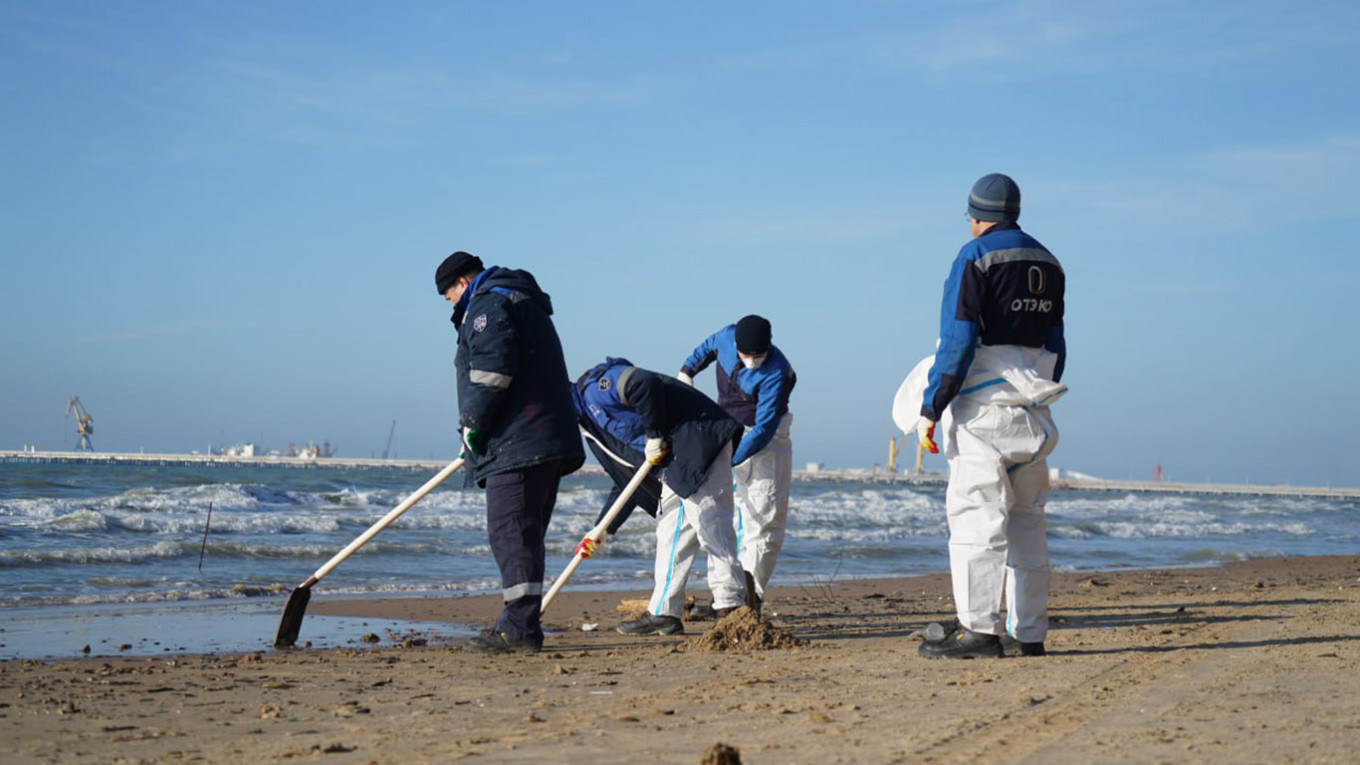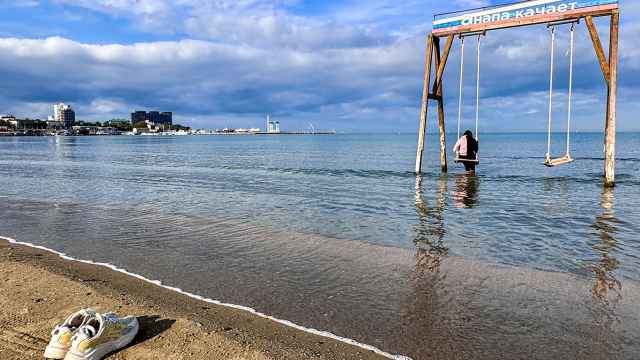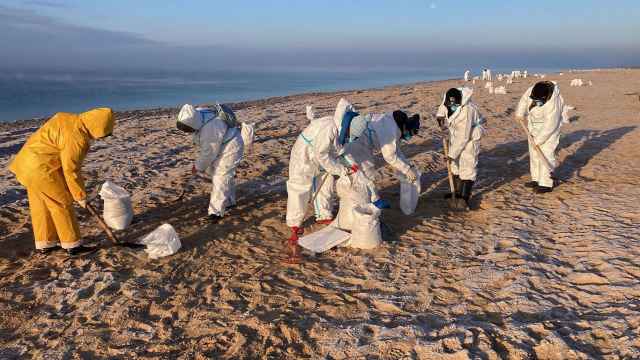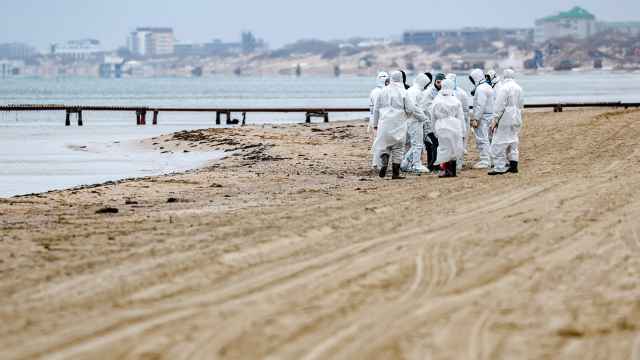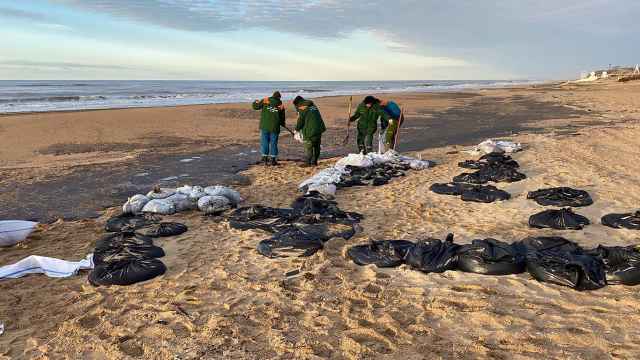Oil has begun leaking again from an oil tanker that ran aground at the Taman port in southern Russia’s Krasnodar region last month, regional authorities said Friday.
The Volgoneft-239 and Volgoneft-212 were carrying a combined 9,200 metric tons of heavy fuel oil when they were struck by a storm on Dec. 15 in the Kerch Strait, a vital waterway connecting the Black Sea and the Sea of Azov near the Krasnodar region and annexed Crimea.
The storm damage led to significant oil spills, contaminating coastal areas and prompting authorities to declare a state of emergency. President Vladimir Putin described the incident as Russia’s most serious environmental disaster in recent history.
Cleanup efforts, heavily reliant on volunteers, have focused on removing oil that washes ashore.
Video published by the Krasnodar region’s emergency response center on Friday showed a black oil slick on the stern of the Volgoneft-239 and extending further out along the beach.
The response center said workers from Russia’s Marine Rescue Service were on board the tanker and measuring the extent of the damage, as well as “taking measures” to limit the latest leak.
Russia’s Transportation Ministry later said the slick measured around 2,800 square meters (30,139 square feet).
“It will be promptly contained with the help of booms and removed from the surface of the sea with bio-sorbents,” the ministry wrote on Telegram, referring to materials used to absorb oil.
The Transportation Ministry previously said there was “no proven technology anywhere in the world” to remove the type of oil involved, a dense M-100 grade mazut that sinks below the surface.
Emergency Situations Minister Alexander Kurenkov reported Thursday that both damaged tankers, which were built more than 50 years ago, were still leaking oil daily.
President Vladimir Putin ordered measures to stop the oil leaks, with Kurenkov adding that a specialized oil removal system brought from St. Petersburg was ready for use.
A Message from The Moscow Times:
Dear readers,
We are facing unprecedented challenges. Russia's Prosecutor General's Office has designated The Moscow Times as an "undesirable" organization, criminalizing our work and putting our staff at risk of prosecution. This follows our earlier unjust labeling as a "foreign agent."
These actions are direct attempts to silence independent journalism in Russia. The authorities claim our work "discredits the decisions of the Russian leadership." We see things differently: we strive to provide accurate, unbiased reporting on Russia.
We, the journalists of The Moscow Times, refuse to be silenced. But to continue our work, we need your help.
Your support, no matter how small, makes a world of difference. If you can, please support us monthly starting from just $2. It's quick to set up, and every contribution makes a significant impact.
By supporting The Moscow Times, you're defending open, independent journalism in the face of repression. Thank you for standing with us.
Remind me later.


